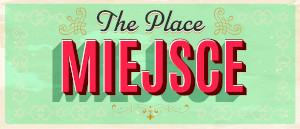News
HENRYR. LEW – LION HEARTS
I have received this book from the author some time ago and since then I have been carrying it in my heart as a recollection of the world that had perished in its physical shape, but which can still be saved by us from another death caused by oblivion. It’s surely not about ancient Egypt, Greece or Rome but about the world of European Jews, at least as it had been till 1933. What’s comforting in this story is the fact that this world, though battered and changed for ever, yet survived on the streets of Melbourne, Ney York, Tel Aviv and in many other places on our planet. Tomek Wisniewski has once called it Atlantis, then let us imagine the dwellers of this land lost in prehistory come to us and give evidence to what has long time ago disappeared from the surface of the Earth. Raphael Rajzner, whose book was first issued in English by this same Henry Lew, described his world at the very moment of destruction, turned on the searchlight and still frightened , but feeling irresistible imperative to provide an eye witness account of what he had seen, directed it towards the scene of the crime without precedence in human history. While you read it your heart stops and your hand hesitates whether to turn another page. Alas, Raphael’s heart stopped at the age of 47 and therefore he was unable to tell us next story. Henry’s father, Lonek, was in turn unable to translate Raphael’s book from Yiddish, though he knew the language perfectly well. He simply saw there his relatives going to death and so he was unable to reach for the pen. Maybe thanks to it he managed to attain very old age but when he felt that the end was coming he charged his son with the task. He couldn’t die in peace without hope that Rajzner’s book would be translated into English as an important testimony of the time of Holocaust.
Henry R. Lew has not only fulfilled the task entrusted by his father but he keeps on writing –his stories provide us with new, little known facts and help us to unlock our imagination and see the past so much different from the one we can see around us nowadays.
Thanks to Harry it becomes much easier though it also causes inevitable pain. The author describes prominent people, members of his family, but also strangers , seemingly in no way related to him. Strangers that by attributes of their minds and their achievements create the circle of remarkable and decent people, well worth writing not one book about them.
We enter the streets of Bialystok at the end of the 20th century, we can see an active society closely attached to the place of their birth, but same time bound by family bonds with more or less close relatives the world over. It is still time of the Russian Empire, so very often one travels to Moscow, Odessa, Petersburg, Brest and many other places under Tzar’s rule. Common economic space creates great possibilities of development eagerly grasped by entrepreneurial Jews. Earned money they bring over Bialka river and here they do invest them; they feel safe so imposing edifices are created, both private and public. Big houses with flats on upper stores and shops or workshops on ground floor, hospitals and high schools; in fact it is them who change Bialystok into a city built of brick and stone – their dream is that their small motherland, their hejm, become most beautiful of all and they transform these dreams into concrete plans and realisations. They are not stopped by the Tzarist pogrom of 1905, when they suffer not first and unfortunately not last of politically instigated carnages. They continue with their work, thanks to which, even after the devastation of the war, we can still see in our city many prominent houses. Lipowa, Warszawska or Sienkiewicza – may we imagine Bialystok without these streets and beautifully decorated facades of the houses facing them ? Not always do we know the history of them all so it’s well worth checking what was the origin of e.g. present day seats of the Bialystok University Department of Economy or Law, or much neglected building housing Gwardia sports club.
Unfortunately the lasting memory of Bialystok multicultural past also includes decaying houses with empty windows covered with drab card boards which are dispersed all over the city. Where their dwellers and owners went for their last journey we will get to know from the pages written by Harry Lew, the son of a man with a more familiar name Lonek Lew.
The author takes us by hand for a tour of Bialystok streets but also tells us the story of ambitious people going to study in Vienna, Paris or Lvov. Travelling to other continents in the search for new horizons or simply inspired by human curiosity of the world.
We can see on the pages of the book a parade of famous people from the past and the presence like Jan Karski, Ida Kaminska, Anthony Eden, Leopold Unger or the man that we all know – Tomek Wisniewski, whom the author placed without hesitation among all those celebrated people. If we don’t yet know why then we have another reason to read the book.
As always in stories about Jews, and especially so in those written by Jews, the reading makes us laugh and makes us cry. Everything provided in vivid colours. But the book includes the scenes that make it really special. we can see people sitting on a balcony, enjoying vodka and observing with satisfaction the burning Warsaw ghetto as another Hitler’s success but there is also a camp commander taking a prisoner to freedom in a trunk of his car. Another scene shows future CEO of Polish artistic promotion company Pagart as during the war he evacuates Jews from Nazi occupied Lvov dressed in SS uniform pretending to escort employees of German construction companies.
A reading worth recommending because it shows a rare perspective of Jewish fate throughout the 20th century. Surely it is not only another story about Jews, Poles and Germans. This is a tale about human condition; as Lonek Lew used to tell his son, there are no good and bad nations, there are simply good and bad people. Let us recollect with gratitude the former and let us not forget where the latter may lead us. Shalom !
KrzysztofGodlewski











